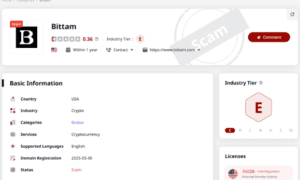Relevant institutions believe that in the current industrial exploration period, the meta universe still needs to experience 10-15 years of evolution of “content infrastructure consumption explosion and virtual and real exchange”, and finally realize ecological opening and economic self-consistency. As the entrance of the metaverse, VR / AR has a relatively broad application space and development potential in the future.
VR / AR has a promising future
According to relevant data, global AR / VR sales in 2020 were 5.85 million units, up 4% year on year; global AR / VR sales in 2021 were 11 million units, up 88% year on year; and in 2022, global AR / VR sales are expected to reach 15.5 million units, with a growth rate of 41%. Global AR / VR sales will grow significantly in the next three years from 2022 to 2024.
According to industry insiders, the downstream application scenarios of the VR / AR field are broad, and there are many opportunities for “virtual reality / augmented reality +”, which is deeply integrated with traditional industries, and there is sufficient space for creative mining. With the gradual improvement of the virtual reality industry chain, the enabling effect of VR / AR on all walks of life will show a huge effect, and gradually expand to public services, education, entertainment, news communication, engineering manufacturing, and many other fields.
VR / AR field: various giant layout
The virtual reality and augmented reality industries are expected to grow rapidly over the next few years and inject new impetus into a wide range of areas, including education, healthcare, and entertainment, according to a report released by global market consulting firm Data International. With the VR / AR industry in the wind of rapid development, the major technology giants have entered the track to carry out the layout. For a long time in the future, technology research and development and innovation capabilities will become a powerful engine and fundamental support for the development of enterprises.
Meta (META), as the top stream of the technology circle, is a banner of the technology circle and plays an important role in leading the industry. Its Reality Labs is Meta’s Metaverse Strategy Core division, responsible for Quest VR hardware and software, Portal video call devices, and Ray-Ban Storie’s camera glasses, as well as research and development of AR glasses and other future AR / VR devices. Mark Zuckerberg told investors in October that the investment in AR / VR would reduce Meta’s overall profit by $10 billion in 2021, saying, “I expect this investment to grow further in the next few years.”Despite the recent Meta cost cuts, CFO David Wehner has confirmed that Meta still plans to increase its investment in AR / VR.
While Apple (AAPL) has not yet officially announced any augmented reality or virtual reality hardware, Apple CEO Tim Cook has long since clearly expressed his interest in augmented reality. It is also known that Apple is developing several AR and VR devices, including an AR / VR headcase, and reports of developing a smaller, lighter “Apple Glass” wearable device for working with the iPhone. With Apple’s AR / VR headset coming out late this year or early next year, the XR market is expected to unveil its mystery.
In 2022, Microsoft (MSFT) acquired Activision Blizzard to deeply layout AR / VR content. Microsoft has previously developed VR / AR-related devices, called HoloLens. It’s now been iterated to the second generation. Recently, Microsoft’s then-CEO Satya Nadella said that Microsoft’s Azure Space platform layout would extend to the metaverse space, using a software-led approach, without hardware restrictions. Microsoft’s planning in the metaverse is mainly software, and Mesh for Teams, previously claimed to be the gateway to the app, has few restrictions on compatible devices and can be used in VR headsets, HoloLens s, tablets, mobile phones, PC, and other terminals. Microsoft will not be limited to AR / VR hardware, but wants a wider range of platforms.
It is understood that WiMi Hologram Cloud (NASDAQ: WIMI) is an important enterprise in the metaverse industry chain, and it is deeply engaged in the AR / VR field. At present, it has reserved the underlying technologies of AR / VR-related hardware products, such as AI, 5G, semiconductors, digital person, and other technologies, and the core technology in reserve is holographic AR technology. Some people point out that the “entry” of investors with VR / AR industry background helps to improve the accuracy and effectiveness of VR / AR field financing. In recent years, WiMi Hologram Cloud has gained industrial agglomeration and support by investing in and acquiring many R & D companies in the holographic AR industry, forming a strong holographic AR technology R & D ecosystem, and building a holographic AR value industry chain with great expansion potential. These investment and financing activities and the company’s metaverse business produce a strong upstream and downstream synergistic effect, effectively realizing the company’s AR / VR technology to quickly participate in the application of the metaverse scenario.
Disney (DIS) has announced that it has selected six companies for its annual accelerator program, highlighting the company’s strong interest in AR, NFT, and AI roles. Among them, augmented reality seems to be an area of special interest in this round of accelerator plans. Disney chose Flickplay in Los Angeles, an app that allows users to collect NFT for AR viewing, and Red 6 in Florida, Inc., which makes its AR headsets work outdoors. It also chose the New York-based Obsess, an e-commerce platform for brands to create 3D / AR virtual stores for its website.
In 2021, ByteDance successfully bought VR head-mounted display maker Pico for 9 billion yuan. Pico now has 349 licensed patents. ByteDance has said that the acquisition of Pico will support its long-term investment in the VR / AR space, absorbing Pico’s software, hardware, talent, and expertise advantages, and gradually deepen its long-term investment in the metaverse space. The acquisition of Pico is considered by many as ByteDance hopes to develop a leading VR / AR company and expand the VR / AR market. Recently, it was reported that Ma Jie, the former head of Xiaomi VR business, has entered the ByteDance for work, and the ByteDance is increasing its investment in VR / AR.
Tencent (TCEHY) was also interested in buying Pico, but it was not bidding with ByteDance, according to people familiar with the matter. Tencent started with social networking and relied on games. Tencent, which was not good at doing hardware, was robbed of Pico by ByteDance, which affected the process of getting the “metaverse admission ticket” to some extent. But in June 2022, Tencent officially established an internal expanded reality (XR) department, belonging to the Interactive Entertainment Business Group (IEG). For Tencent to get the metauniverse “ticket” Tencent, about VR / AR investment has never stopped.
SONY (SONY) says that the best use scenario for VR / AR devices must be in the home, and eventually, every family will experience the entertainment life like the movie Ready Player One. However, due to the hardware equipment and price factors, the VR device experience is relatively good in the shopping mall, and VR use has not been entered into the home. In addition to the PS VR2 release, SONY will continue to launch ecological hardware matching VR / AR.
The future of the VR / AR
In addition, considering the power of the VR / AR market giants, there are many big mobile phone brands such as OPPO, Samsung, Lenovo, and so on. Whether it is Meta, Apple, SONY, WiMi Hologram Cloud, or Tencent, it is foreseeable that the entire VR / AR industry will grow highly in 2022 after a dormant period in the past few years.
When industry experts and scholars have said that meta-universe will become the next generation of the Internet under the trend of technological change, VR / AR industry has already been faster to bet on meta-universe, to contribute and improve infrastructure. In the future, the concept of the metaverse is expected to drive the VR / AR primary market to remain hot in the long term. The real VR / AR war is coming



































